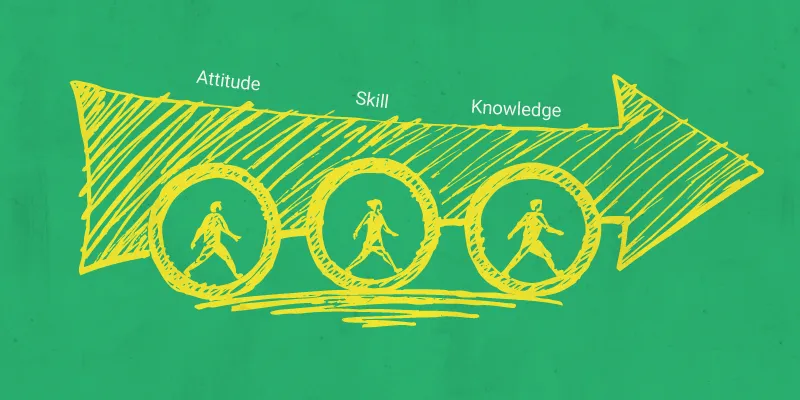Working in a team? Here are the essential elements to make it competent and cohesive

Every organisation needs to clearly break down the competency attributes for each job role. This ensures that the right people are hired for the right job, and tasks are delegated to the person in accordance with his or her competence.
Have you ever wondered why one individual performs better than another on a team? It is because they differ from each other on a very specific component – their competence. In fact, competence is what determines an individual’s performance.
Competence is the integration of the attitude, skills, and knowledge required by an individual to perform his or her job tasks in an effective manner. Thus, in order to get a job done, one needs to possess the right mix of all three elements relevant to the specific job tasks and activities.
Only the right attitude is not good enough to get the job done. For an individual to perform the required tasks, he or she needs to have the skills and the knowledge as well. Likewise, only skills or only knowledge is not sufficient either; one needs to have the right attitude to put those skills and knowledge to work to produce the desired results.
To further break this down, here is how I define the three elements:
● Attitude is the amalgamation of behavioural traits and the mindset of an individual. It determines their background context in a given situation. For instance, patience, persistence, empathy, and attention to detail are all traits that would fall under the bucket of attitude.
● Skills are the capabilities required by an individual to execute critical job tasks. For instance, selling, negotiation, and presentation are the critical skills that a sales executive needs to possess. For a customer support executive, attentive listening would be a skill, as answering phone calls of customers would qualify as a critical job task in that role.
● Knowledge would be the data and information that an individual needs to possess to be able to perform the task at hand. Similarly, for a sales person, product information, customer information, and competitor information would comprise the critical knowledge required to be effective in the job role.
Another key element for us to keep in mind is that the competence attributes differ from one job role to another. For example, the attitude, skills, and knowledge required to be effective in a sales role are very different from the attitude, skills, and knowledge required to perform the job of an accountant.
Every organisation needs to clearly break down the competency attributes for each job role. This ensures that the right people are hired for the right job, and tasks are delegated to the person in accordance with his or her competence. Otherwise, either the wrong person ends up being hired for the wrong job, or the wrong job ends up being delegated to the wrong person, creating not only unrealistic expectations, but also wastage of time, effort, and finances.
In the context of MSMEs, it is critical that team members have complementary competencies to be able to keep the ball rolling in all functions of the business, i.e. marketing, sales, operations, accounts, human resources, and management. This is one common mistake that I see many MSMEs making is building teams that are only strong in one particular department, but not in the others. This, sooner or later, lands them in a struggle of execution, in each of the other departments.
Even when it comes to creating the right combination of co-founders for a venture, the key is to have diversity of competencies between the members of the top team, to cover various functions of the business.
When a business uses this approach of competence attributes for any kind of people management activities, it is able to implement a more objective and scientific operational plan, rather than a subjective and biased one. In a nutshell, the key to building a high-performance team is defining the attributes of attitude, skills, and knowledge for the various job roles essential for delivering the goals of the business, and using this list of competencies for hiring, training, and managing people.
It is only when you take care of the ‘A-S-K’ factor (Attitude-Skills-Knowledge) in your business, that you can deliver on the TASKS of the business. Thus, “No A-S-K = No Task”.
(Disclaimer: The views and opinions expressed in this article are those of the author and do not necessarily reflect the views of YourStory.)







